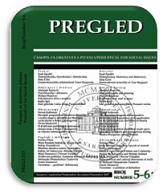Inter/kulturalna filozofija, filozofija Karla Jaspersa
Inter/cultural philosophy: the Philosophy of Karl Jaspers
Author(s): Abdulah ŠarčevićSubject(s): Philosophy
Published by: Univerzitet u Sarajevu
Keywords: philosophy of existence; world philosophy; truth and humanity; human self-shaping and the spirit of the times; freedom and the mind; peace; critique of modernism and the perversion of the mind; pathology of the mind; confiscated peace
Summary/Abstract: How is one to find one’s way from “the end of European philosophy to the global philosophy to come?” Long ago, Jaspers perceived the possibility of a post-European philosophy of the future in the shape of a global or intercultural philosophy. For us today, this possibility is inconceivable, opening up for all cultures, in a kind of dramaturgy of the mind, a shared life in a common domain of thought. Karl Theodor Jaspers is one of the most important philosophers of the 20th century. He was a psychiatrist, philosopher and political thinker, a critic of the totalitarian system, of the perversion of history and ideology, of Nazism and communism. His philosophy, like that of Karl Popper, is of the greatest interest in the 21st century in the critique of nihilistic and irrationalist aspirations,and of the fetishization of science and technology. Central to this is the idea of forms of life in which the truth of the idea of freedom and responsibility, of tolerance and pluralism, of the ability to live wisely, manifests itself. It is sufficient to say that with wisdom we avoid both the totalizing figure of thought and action and the wastelands of relativism, indifferent to questions of morality. Jaspers’ liberal, Enlightenment mode of thought, his concept of philosophical belief, of code-script and transcendence, his reflections on the future of humankind in an age of science and technology, the idea of the world and uniformity of thought, shed light on the most important issues of our time. His thinking is characterized by the preservation of freedom and the intellect, of truth in time that is not detached from the human being; it is “navigations in truth,” the decision that freedom is to be created and preserved, which for Jaspers is “the unconditionality of existential decision.”We are exiled as humans if we fail to make sense existentially of these issues now, in post-European, global philosophy. We want relaxed observation and argument, beyond the death-throes of civilization – not only European – and of the drama of the march from modernity to our own times. Committed thinkers are not prophesying a clash of civilizations, cultures and religions; in these times of watershed, we are not proposing the theory of decline assisted, directly and indirectly, by electronic imperialism and media empires. This writer is speaking “in the name of the moment he is interpreting,” which is by no means a phantasmagorical idea or seductive mirage. Since 1954, Karl Theodor Jaspers has not been, for this author, the destructive intoxicant in the “monism of the bourgeois mind” of which the concomitant, in an age of the theatricalization of freedom and truth, are “infantile urges.”
Journal: PREGLED - časopis za društvena pitanja
- Issue Year: L/2009
- Issue No: 1
- Page Range: 15-43
- Page Count: 29
- Language: Bosnian

